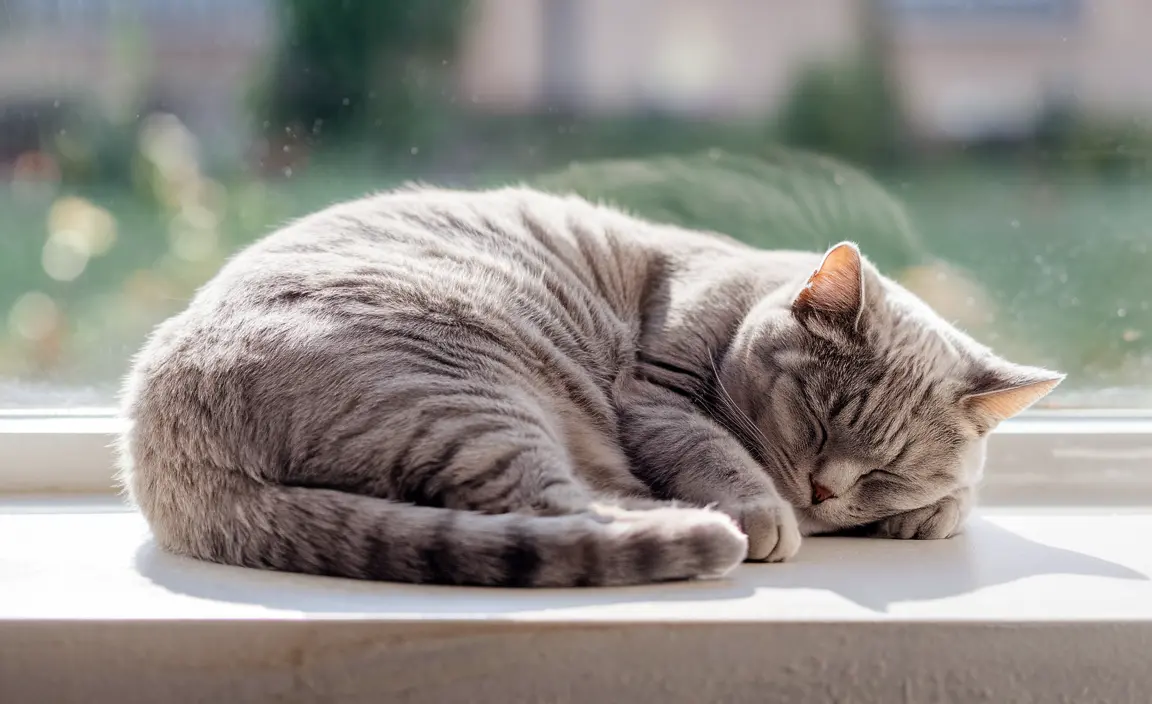Cats are known for their quirky sleeping habits, and one particularly intriguing position is sleeping face down. While it might seem odd to human eyes, this sleeping style is actually quite common and usually completely normal for our feline friends. Understanding the reasons behind this behavior can help cat owners better appreciate their pet's comfort and well-being.
In this comprehensive guide, we'll explore the fascinating world of cat sleeping positions, focusing specifically on why cats choose to sleep face down and what it means for their health and happiness.
Comfort and Instinctive Behaviors
Seeking Maximum Comfort
Cats are masters of finding the most comfortable sleeping positions, and face-down sleeping is often a testament to their incredible flexibility. This position allows them to curl up tightly, protecting their vulnerable areas while maximizing warmth and security. Just like humans might pull covers over their head, cats use this sleeping style to create a cozy, enclosed feeling that makes them feel safe and relaxed.
Light and Temperature Management
One of the primary reasons cats sleep face down is to block out ambient light and regulate their body temperature. By pressing their face against a soft surface, they can create a dark, warm environment that promotes deeper, more restful sleep. This is especially common in areas with bright lighting or during seasons with significant temperature fluctuations.
Psychological and Emotional Factors
Stress Relief and Emotional Coping
Interestingly, face-down sleeping can also be a psychological coping mechanism for cats. When experiencing stress or significant changes in their environment, cats might retreat into this position as a way to feel more secure. This could happen after events like losing a companion, moving to a new home, or experiencing changes in their daily routine.
Scent Marking and Territory
Cats have scent glands on their faces, and sleeping face down can be a subtle way of marking their territory. By pressing their face against a surface, they're leaving their unique scent, which helps them feel more connected to their environment and establishes a sense of ownership and comfort.
When to Be Concerned
Monitoring Unusual Sleeping Patterns
While face-down sleeping is typically harmless, sudden changes in your cat's sleeping behavior could warrant attention. If your cat begins sleeping face down more frequently and exhibits additional symptoms like lethargy, decreased appetite, or unusual weakness, it might be time to consult a veterinarian.
Signs of Potential Health Issues
Pay close attention if your cat's face-down sleeping is accompanied by:
- Persistent hiding
- Significant changes in behavior
- Lack of interest in usual activities
- Visible signs of discomfort
Creating the Perfect Sleep Environment
Comfortable Bedding Recommendations
To support your cat's natural sleeping preferences, consider these tips:
- Provide a warm, soft bed with multiple texture options
- Create quiet, dimly lit sleeping areas
- Offer beds in various locations to give your cat choices
- Use orthopedic or heated beds for older cats
Frequently Asked Questions
Why does my cat sleep face down, and is this a normal behavior?
Face-down sleeping is generally normal and indicates your cat feels comfortable and secure. It's a natural position that helps cats regulate temperature, block light, and feel protected.
How can I create a comfortable environment to encourage healthy sleeping habits for my cat?
Provide multiple sleeping areas with soft, warm bedding, ensure a quiet environment, and respect your cat's preferences for light and temperature.
What does it mean if my cat sleeping face down is a new behavior?
A sudden change in sleeping position could indicate stress, environmental changes, or potential health issues. Monitor your cat's overall behavior and consult a vet if you're concerned.
How can I help my cat sleep better if it's sensitive to light or cold?
Use blackout curtains, provide warm beds, and consider heated blankets or beds designed specifically for cats to help them feel comfortable.
Are there any medical conditions that might be indicated if my cat suddenly starts sleeping face down more frequently?
While face-down sleeping is usually harmless, persistent changes combined with other symptoms like lethargy or reduced appetite could signal underlying health issues. Always consult a veterinarian if you're worried.






